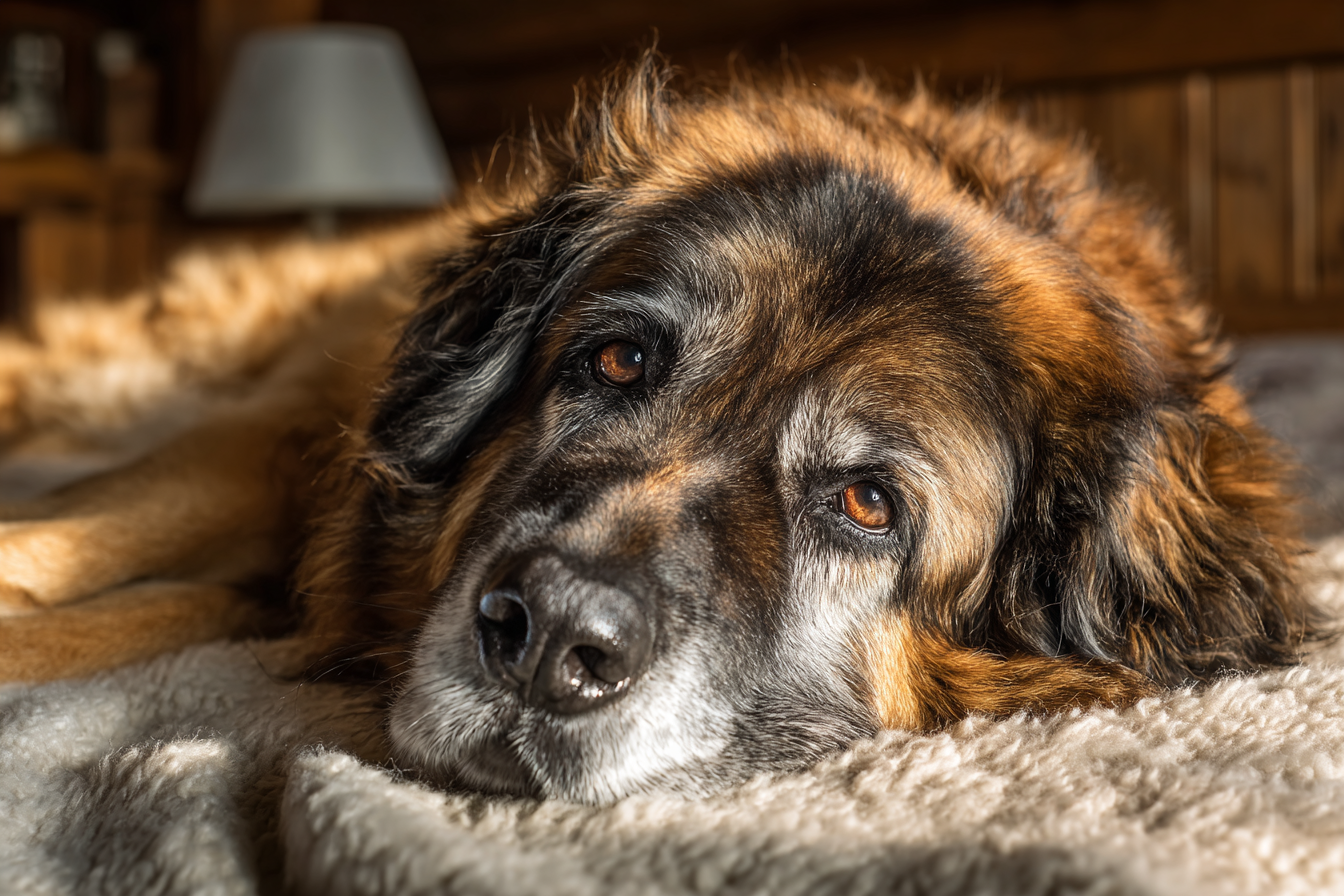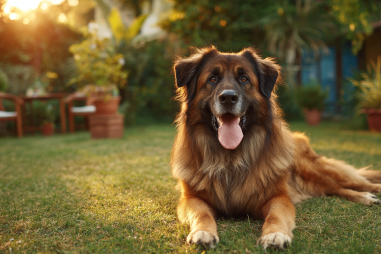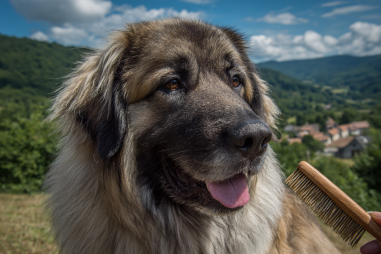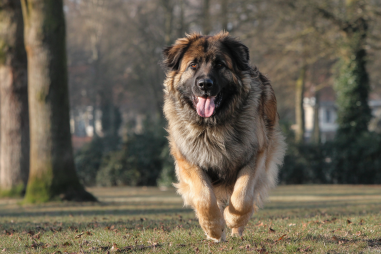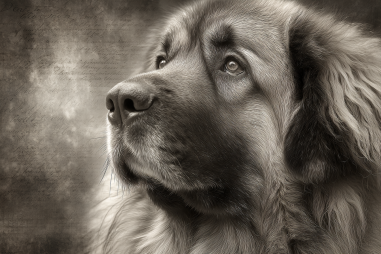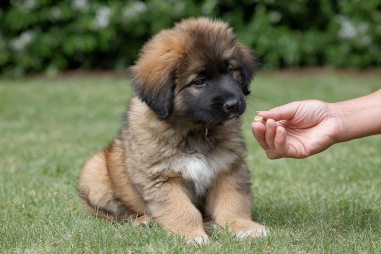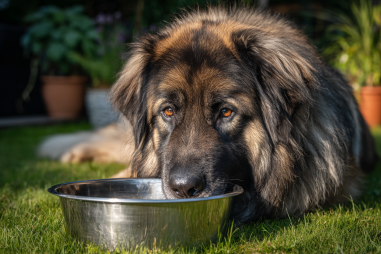Leonbergers are majestic and gentle giants, known for their friendly nature and impressive size. As a dog owner, understanding the lifespan and aging process of your Leonberger is vital for ensuring they enjoy their golden years with comfort and happiness. From recognizing the natural changes they undergo as they grow older to adjusting their lifestyle, each stage of your dog’s life demands thoughtful care and attention. In this article, we’ll explore what you can expect as your Leonberger ages and provide helpful tips for supporting their health and well-being throughout their lifetime.
Average Lifespan of Leonbergers
The Leonberger is a large breed, typically weighing between 90 and 170 pounds. Due to their size, Leonbergers generally have a shorter lifespan compared to smaller breeds. On average, a Leonberger’s lifespan ranges between 7 and 10 years. While this might seem limited, proper care, nutrition, and veterinary attention can help many Leonbergers live a full and vibrant life closer to the upper range of this estimate.
It’s worth noting that genetics and environmental factors contribute significantly to longevity. Responsible breeding practices that emphasize health screenings for common hereditary conditions—like hip dysplasia, heart issues, and certain cancers—can improve the chances of longer, healthier lives for these dogs.
Physical and Behavioral Changes with Age
As Leonbergers age, they undergo several physical and behavioral changes that are natural parts of their aging process. Recognizing these changes helps owners adjust care strategies accordingly.
- Physical Changes: You might notice graying or whitening of fur, especially around the muzzle. Joint stiffness and reduced mobility become more apparent as arthritis or other musculoskeletal issues develop. Their eyes may become cloudier due to cataracts or other age-related vision changes. Additionally, muscle mass typically decreases while body fat increases, altering their overall physique.
- Behavioral Changes: Older Leonbergers may show less enthusiasm for vigorous activities and prefer lounging or gentle walks. They might experience changes in sleep patterns, often sleeping more during the day and night waking. Some seniors can display increased anxiety or confusion, especially if cognitive dysfunction syndrome (doggy dementia) begins to take hold. However, many maintain a calm and affectionate demeanor, seeking more companionship and comfort.
Senior Dog Health Care Tips
Prioritizing health care is essential to give your aging Leonberger the best quality of life. Regular veterinary visits become increasingly important to monitor and address age-related conditions early. Annual or biannual check-ups can include thorough physical exams, blood work, dental evaluations, and screenings for common senior dog ailments.
Preventive measures such as vaccinations, parasite control, and dental cleanings help reduce the risk of illness. It’s also crucial to watch for weight changes since obesity can exacerbate joint and heart problems. Be open with your vet about any observed changes, including decreased appetite, mobility issues, or behavioral shifts—they may suggest treatments, supplements, or therapies to ease symptoms and improve comfort.
Adjusting Diet and Exercise for Aging Dogs
Proper nutrition and exercise adjustments play a central role in supporting a Leonberger’s health as they age. Older dogs generally require fewer calories due to decreased activity levels but may need diets that are richer in certain nutrients to maintain muscle mass and joint health.
- Diet Adjustments: Look for senior-specific formulas or consult your veterinarian for recommendations. These diets often include added omega-3 fatty acids, glucosamine, chondroitin, and antioxidants. Protein quality remains important to prevent muscle wasting, while fiber can help digestive health. Ensure fresh water is always available, and avoid overfeeding to maintain a healthy weight.
- Exercise Modifications: While rigorous exercise becomes less suitable, regular low-impact activities like gentle walks or swimming remain beneficial. These activities help maintain joint flexibility, cardiovascular health, and mental stimulation. Avoid strenuous or high-impact exercises that could stress aging joints or cause injury. Pay close attention to your dog’s energy levels and comfort, allowing plenty of rest.
Signs of Aging to Watch For
Being vigilant about signs of aging empowers you to seek timely care and interventions. Some changes are normal, but others may indicate medical issues that require attention. Watch for the following:
- Difficulty rising, limping, or reluctance to jump or climb stairs
- Changes in appetite or water consumption, including weight loss or gain
- Increased tiredness or reluctance to engage in usual activities
- Changes in behavior such as confusion, disorientation, or excessive barking
- Changes in bathroom habits, including accidents indoors or difficulty controlling elimination
- Visible lumps, swelling, or skin abnormalities
- Labored breathing or coughing
- Eye or ear problems like cloudiness, discharge, or hearing loss
If any of these signs arise, prompt veterinary consultation is advisable to diagnose and manage issues effectively.
Providing Comfort and Companionship
Beyond medical care, emotional well-being is essential for your senior Leonberger’s quality of life. These gentle giants thrive on love, interaction, and a sense of security.
- Comfortable Living Space: Create a warm and accessible resting area with orthopedic dog beds to ease pressure on joints. Make sure their sleeping area is quiet and away from drafts or hard floors.
- Companionship: Spend quality time together through gentle petting, grooming, and calm engagement. Familiar routines provide a sense of stability, while inclusion in family activities helps them feel valued and secure.
- Physical Support: Consider assistive devices like ramps for getting on couches or into cars and non-slip mats to prevent falls on slippery floors.
This blend of physical care and affectionate companionship helps ease the transition into senior years while maintaining a joyful bond with your pet.
Caring for your Leonberger through the years is a rewarding journey filled with love and learning. By understanding their lifespan and the natural aging process, you can provide tailored care that supports their health, comfort, and happiness at every stage. With regular veterinary check-ups, a balanced diet, appropriate exercise, and ample companionship, your beloved Leonberger will continue to be a loyal and gentle giant in your life for many years to come.

